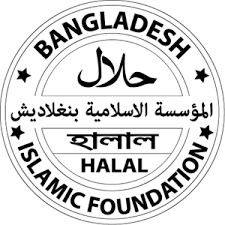
The Department of Trade and Industry (DTI) has adjusted its halal exports target for this year to reflect import policy changes in existing markets, as well as the availability of new shipments data.
Trade Assistant Secretary Anthony B. Rivera said the target was slightly lowered to mirror the slowdown in consumption of halal products across the world. He added the DTI is also struggling to get the real value for the country’s halal exports due to lack of data.
“I would not say it [the target] was lowered, but there were adjustments made to reflect the global market and also new data,” Rivera told the BusinessMirror in a phone interview.
The original growth target for halal exports this year was 6 percent to 8 percent to as much as $605 million, from some $560 million last year. However, Trade Secretary Ramon M. Lopez said in his speech at the Second Philippine National Halal Conference last week the growth goal is 4 percent to 5 percent.
“There is a slowdown and this was due to the new policies of our markets abroad in terms of halal recognition and standards coming particularly from Gulf Cooperation Countries, like the United Arab Emirates [UAE] and the Kingdom of Saudi Arabia [KSA], among others, but we expect these numbers to go back to its growth trend,” Lopez said.
“Our target is a single-digit growth [of] 4 percent to 5 percent of halal-certified products of food and beverages, as well as cosmetics and personal-care products. Our major markets are Malaysia, UAE, KSA, Indonesia and Iran,” he added.
On top of the global slowdown in the market, Rivera also pointed to the lack of reliable data on the country’s halal shipments as a factor for adjusting the target.
“We only base our data from the assumption that products exported to the Middle East, Malaysia, among others, are all halal products. Right now, trade data do not discriminate what is halal and and what is not,” Rivera explained.
“That is why we are working with the academe in trying to come up with a more reliable data source for our halal exports, and the DTI is also looking into best practices of halal-exporting economies on how they handle their halal shipments,” he said.
According to the trade official, the DTI is tying up with the De La Salle-College of Saint Benilde in coming up with a framework that will more accurately compute and forecast the country’s halal exports. The school has its own export marketing program dedicated to the study of shipping goods and services overseas.
Lopez said he is targeting to make the Philippines an exporter of halal poultry and meat products in the future once the government’s halal hubs are completed.
“In the future, we would like to see notable exports of halal poultry and meat. Once our halal hubs are in place and we have slaughterhouses and laboratories dedicated for halal, we are optimistic that this goal would be realized,” the trade chief said.
Under Lopez, the DTI is seeking to turn the Philippines into a major player in the global halal market valued at some $3.2 trillion at present.
The market is projected to expand to as much as $10 trillion by 2025 with Muslims set to comprise over 25 percent of the world’s population in the next decade. Half of the global Muslim population resides in South Asia and Asia Pacific, making it geographically strategic for the Philippines to trade with.
Halal products and services are required to adhere to the prescribed process of preparation according to Islamic law and be authorized by halal certification bodies.



